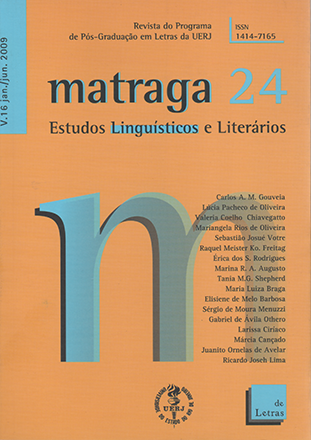Brazilian Portuguese cleft sentences in a functionalist framework
Keywords:
cleft constructions, person-number concord and tense-mood correlations, [± activated] knowledge and shared knowledge, contrast.Abstract
In this article, two “families” of so-called cleft constructions are investigated: one of them similar to English It-clefts, here referred to as Clivadas, and its variants (É QUE Constructions and QUE Constructions); and the other one represented by the so-called Pseudo-Cleft, similar to English Wh-Clefts, and its variants (Inverted Pseudo-Clefts, Extraposed Pseudo-Clefts and Focus Constructions with the copula SER). First, we characterize and exemplify the several variants, focusing on person and number agreement between the cleft segment and the copular verb ser and tense-mood correlations between the verbal predicates of the cleft sentences. The results for these variables suggest that the variants QUE Constructions and Focus Constructions with the copula SER are more grammaticalized than the other constructions. Next, the flow of information in these sentences is investigated. The results show that the referent of the cleft segment tends to code [+activated] information, mostly in the case of QUE Constructions and Clivadas. The focussed referents of Pseudo-Clefts, however, are different in presenting almost the same percentages for [+activated] and [-activated] referents. It is worth mentioning that the [-activated] referents tend to code shared knowledge (presupposed familiarity). Finally, the variants are argued to behave differently when they function as resources to signal contrast.
Downloads
Downloads
How to Cite
Issue
Section
License
Authorization
Matraga – Scientific Journal of the Post-graduate Program in Arts and Humanities of UERJ is authorized to publish the article submitted here, if it is accepted for online publication. It is attested that the contribution is original, that it is not being submitted to another publisher for publication, and that this statement is the expression of truth.
The works published in Matraga's virtual space – Scientific Journal of the Post-graduate Program in Arts and Humanities of UERJ will be automatically transferred, and your copyright is reserved to Matraga. Its reproduction, in whole or in part, is conditional on the citation of the authors and the data of the publication.

Matraga uses license Creative Commons - Attribution-Non-Commercial 4.0 International.





